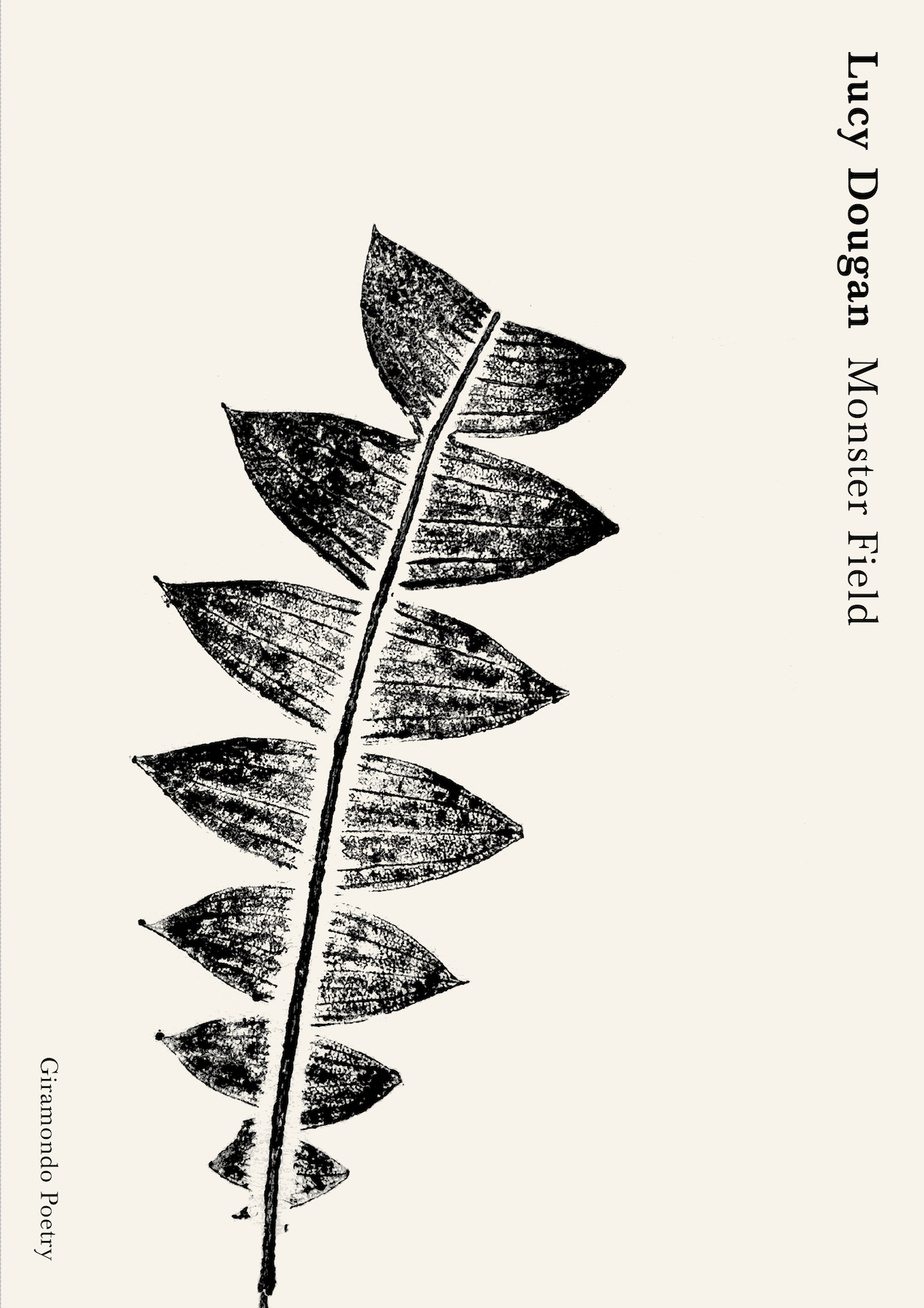 Reviewed by Beatriz Copello
Reviewed by Beatriz Copello
Monster Field
by Lucy Dougan
Giramondo
96 pages, Paperback, November 2022, ISBN: 9781922725370
Lucy Dougan is an award-winning poet with six books to her name, Monster Field is her seventh book of poetry. Monster Field is divided into three sections, the first section is prefixed by a quote from Deborah Levy and says: “It was true that I had no idea how to endure being alive and everything that comes with it.” This is a very appropriate quote because Dougan’s poetry is mainly about being alive and what that means, not only in this section but also on the other two as well. The poet observes the world and ponders about people, events and art. The work is rich with analysis, comments and reflections. Some of the poems contain irony, while others have a veiled humour, combined with philosophical thoughts and a sense of acceptance of life and what life brings.
I was impressed by Dougan’s ability to create pictures with words and how she appeals to the reader’s senses. The following, and excerpt from the poem titled “Space Walk”, is a good example:
I can still smell the chairs’ oiled frames
and feel the not unpleasant roughness
of their slubbed fabric covers.
My father with his Gatsby looks
and clothes that sat on him
just the way they had from boyhood,
and my mother with her contained
sleek joy and her bare legs crossed
that might at any moment
curl under her contentedly.
Many family stories come alive on the page, and Dougan’s mastery of literary devices make the poems a pleasure to read. The poems are wide-ranging and explore relationships, unanswered questions, and aging. Many women readers will recognise themselves in the following poem titled “Blue-Black”:
These days
I am fading.
I have to colour myself in,
lips, brows, lashes, hair
with little tools
that I never really understood.
The epitaph for the second section comes from from John Berger’s Confabulations: “I propose a conspiracy of orphans.” Intrigued by this I embarked on mini- research and found in audible an explanation of the quote. Berger explains: “I propose a conspiracy of orphans. We exchange winks. We reject hierarchies. All hierarchies. We take the shit of the world for granted and we exchange stories about how we nevertheless get by.” This is a terrific opening for the work that follows in this section, which explores films, arts, childhood memories and family events and issues. The work feels intimate and subtle, as if a curtain were being opened, little by little, inviting the reader to peak behind the immediate appearance to find something more, for example, the simple act of putting up wallpaper–child and father, revealing so much that is unspoken and understood with hindsight:
And I wish,
as much as one might wish,
lost in the woods,
that I had slain
the ogre inside my skin
that did not say
your forest is beautiful (“The Wallpaper”)
I found myself thinking of these poems, comparing them with my own life, and the ogres inside my own skin.
Dougan introduces the third section of the book with a quote from Don DeLillo: “All the blood facts that follow me to bed at night.” As with the other two sections, this intriguing short quote provides the perfect context for the poems that follow, setting up the reader for themes of deaths, dreams, lies, memories, and conflicts we carry in our conscious and subconscious mind. The book ends with a charming piece “Little Ditty” which references John Mellencamp’s big 1980s hit “Jack and Diane”:
I’ve grown old
with the soundtrack in here,
with my hapless compadres
bloody Jack & Diane
who are apparently, like me,
still doing the best they can.
Dougan’s powers of observation and deep analysis shine through her poetry. Monster Field is a great book which reflects life with its ups and downs, the minutia and the grand events, love and loss.
About the reviewer: Dr Beatriz Copello is an award-winning poet who writes poetry, fiction, poetry reviews and plays. The author’s books are: Women Souls and Shadows, Meditations At the Edge of a Dream, Under the Gums Long Shade, Forbidden Steps Under the Wisteria, A Call to the Stars translated and published in China and Taiwan, Witches Women and Words, Renacer en Azul and Lo Irrevocable del Halcon (In Spanish). Copello’s poetry has been published in literary journals such as Southerly and Australian Women’s Book Review and in many feminist publications. Copello is mentioned amongst the forty “most notable people” graduated from the University of Technology, Sydney.